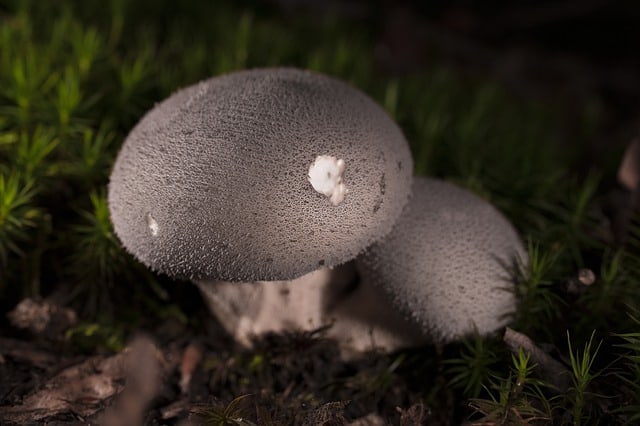Lion’s Mane has been used for centuries by many peoples for many conditions, and there haven’t been any adverse side effects reported.
If an individual does have a reaction, it’s likely to be caused by an allergy. This could cause difficulty breathing, rashes, or hives. It’s important to get immediate medical attention if this happens.
What does Lion’s Mane do?
Lion’s Mane is an antioxidant, anti-inflammatory, and it may be good for the gastrointestinal tract.
Lion’s Mane has antioxidant properties, which means it may have the potential to protect your cells against free radicals. If this is true, it could act as an anti-cancer and anti-heart disease agent.
As an anti-inflammatory, Lion’s Mane may be able to relieve pain, headaches, and PMS symptoms. It could also act as an anti-depressant.
As for the gastrointestinal tract, using Lion’s Mane may help encourage the growth of good bacteria in the digestive system and improve gut health.
What is Lion’s Mane used for?
Lion’s mane has many uses. It can be taken in many forms for a mood boost, an anxiety reducer, pain reliever, and even to help the body repair nerve damage.
There are many other uses for Lion’s Mane, but there aren’t many studies on the consumption of lion’s mane in humans. It has been consumed for centuries with no known adverse reactions or effects, but it’s best to consult your healthcare provider before using it.
How does Lion’s Mane make you feel?
Lion’s Mane has anti-inflammatory properties, which means that users may experience pain relief, headache relief, PMS relief, arthritis, and some of the minor conditions of anxiety and depression.
Although there haven’t been intensive studies, there was a small Japanese study on women who had various health conditions including menopausal symptoms and poor sleep. The women were given cookies with Lion’s Mane extract or placebo cookies. Women who consumed the cookies with the supplement reported lower irritation and anxiety levels than those who were in the placebo group.
What does lion’s mane do to your brain?
Lion’s mane may reduce inflammation, which would reduce symptoms of anxiety and depression, bringing a sense of calm, and perhaps better focus and/or sleep.
In a study of rats given Lion’s Mane, they showed improved cognitive function and recognition. After they discontinued the use of Lion’s Mane, the cognitive function in the rats returned to its prior state.
It may also increase the release of nerve growth factor or NGF. NGF is primarily involved in the regulation, maintenance, proliferation, and survival of neurons.
If Lion’s Mane truly does help the body in releasing more NGF, it could help heal parts of the brain to improve cognitive function. Therefore, it may be a key in reducing the risk of Alzheimer’s disease, Parkinson’s disease, and dementia.
Is Lion’s Mane addictive?
Lion’s Mane has been consumed by many people for many centuries with no adverse reactions, withdrawals, or addictions.
Animals who have been given high doses of Lion’s Mane have shown no adverse reactions, no overdoses, and no signs of addiction.
Does Lion’s Mane make you feel high?
Lion’s Mane has no psychoactive properties, so it does not give the user a high feeling. It may induce a state of calm, but it won’t intoxicate the consumer.
Does Lion’s Mane make you sleepy?
Lion’s Mane doesn’t cause drowsiness in users.
Lion’s Mane may help to reduce stress and anxiety in users, which may allow for a more restful slumber, but it doesn’t directly cause drowsiness. In fact, Lion’s Mane is often taken in the morning to help boost energy.
What is the best time to take Lion’s Mane?
If you’d like to start taking Lion’s Mane, it would be best to take it in the morning before you start your day.
Some users will take Lion’s Mane in the morning when they drink their coffee to help boost mood, energy, and focus throughout their day.
Other users may take Lion’s Mane closer to bedtime to reduce the minor symptoms of anxiety or to reduce stress before laying down to sleep. By reducing worry and/or stress, it may be easier for some individuals to get a good night’s sleep.
Should I take lion’s mane at night?
Lion’s mane doesn’t make you sleepy, but if you find it hard to wind down or find yourself worrying before falling asleep, it may help you to find a calm stillness so you can rest easier.
Does Lion’s Mane give you energy?
Some individuals will use Lion’s Mane to give them an energy boost, but it doesn’t work the way that coffee or tea does.
Lion’s Mane helps to aid the body in the production of energy. It encourages the body to make more. Lion’s Mane does not directly give the user energy.
How long does it take Lion’s Mane to work?
The amount of time you wait for results after using Lion’s Mane will vary depending on what you’re using it for.
If you’re using Lion’s Mane for energy, it’s likely that you won’t get a surge of energy like after drinking caffeinated drinks. Lion’s Mane helps the body produce more energy but doesn’t inherently give energy to the user.
If using Lion’s Mane for cognitive function, it may take a couple of weeks of use before you begin to see results in any measurable way.
Does Lion’s Mane interact with medications?
Lion’s Mane, just like any other herb or supplement has a chance of interacting with medications. This interaction could cause adverse effects, so it’s best to communicate with your primary physician before adding or removing supplements or medications.
Mixing supplements, medications, and/or substances is dangerous. It can prove to be fatal, so it’s important to talk to your healthcare provider before making any changes.
Does lion’s mane cause headaches?
If you take lion’s mane and notice that you’re having subsequent headaches, it might be time to stop taking the herb and talk to your doctor. Headaches, brain fog, ear pain, and more may indicate a suppressed immune system and eventually a constant illness.


